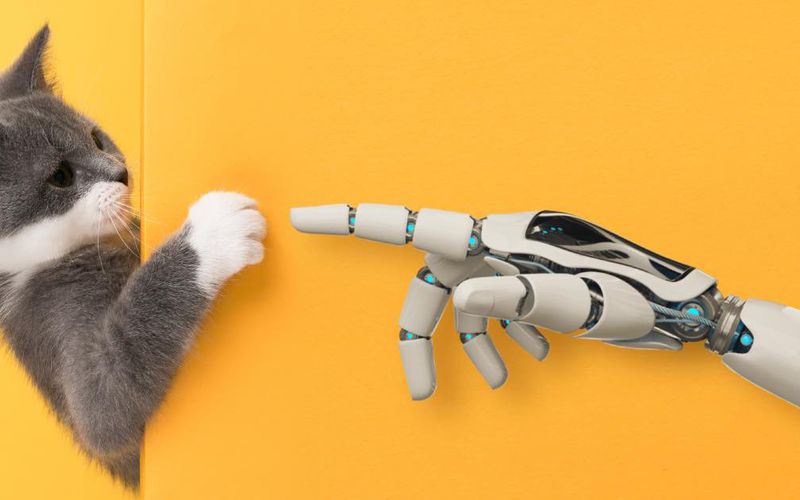

How Can Artificial Intelligence Help Veterinarians?
As veterinarians, we're entering an age of predictive diagnostics in which we will increasingly rely on the transformative powers of technologies, such as artificial intelligence (AI), to aid us in our work.
With practices being busier than ever and appointment windows shrinking as a result, this new technology will help us feel more confident about being able to accurately diagnose our patients in the time we have with them. Here's a closer look at how AI can help to shape this new future for the veterinary field.
Understanding Artificial Intelligence
When machines are able to imitate intelligent human behavior, it's often due to AI. The following key properties are characteristic to AI, and they help to differentiate the discipline from other branches of computer science.
- Autonomy: The ability to perform tasks in complex environments without constant guidance from a user.
- Adaptivity: The ability to improve performance by learning from experience.
AI can be far better understood by considering a few application examples. AI is used for search engines, social media, online shopping, and even your favorite mobile apps. It's embedded into our everyday lives, making the tasks we complete and the entertainment we seek faster, easier, and better — often without us even noticing.
Machine learning (ML) is a part of AI, with its roots in statistics. ML is the study of computer algorithms that improve automatically through both experience and the use of data.
Using AI in the Veterinary Field
The veterinary field involves numerous tasks, many of which are cognitive in nature — whether it be processing a clinical history and combining that information with an examination to generate a set of differentials, or interpreting results from an imaging study or set of blood tests. There are so many areas in the day-to-day working life of a veterinarian where AI could make the job of the individual and team easier, efficient, and sometimes more effective.
Ultimately, the power of AI is akin to having the collective mind of some of the best specialists working for you in real-time, making you, the user, better informed and more confident in your role as a veterinarian.
AI & Diagnostics
One such example is the application of AI in complete blood count (CBC) tests. Through AI and machine learning, blood cell identification methods are accelerating and becoming more accurate. Preprogrammed algorithms are used to facilitate the identification of common abnormal patterns within CBC results. Today's diagnostic equipment uses sophisticated sensors to detect and assess sample information from five dimensions simultaneously. Then, it takes the cell data captured and provides different views of each cell, allowing the cell populations to be separated without the interference of fragments or other cells. This translates to improved cell characterization of red blood cells, white blood cells, and platelets — giving veterinarians additional insights into underlying hematologic abnormalities.
It is not far-fetched to imagine a not-too-distant future in which it will be commonplace for medical diagnostics to be automatically interpreted by AI and a report to be generated in real time, all to then be reviewed and confirmed by the veterinarian. Automation of clinical interpretation tasks such as these offer the promise of freeing up valuable veterinary time and cognitive bandwidth — both of which can then be better spent either seeing more cases or investing more in existing cases, including continued professional development.
There are many examples of exciting applications of AI within the veterinary field, and we are already moving swiftly into an era of AI-enhanced, evidence-based veterinary practices. While challenges and concerns are to be considered, the veterinary field is not immune to the onward march of progress — with AI, in many ways, we are sprinting into the future.







